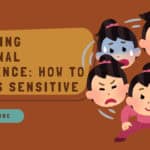Share this
There are so many reasons a parent and child might have difficulty with confidence. Children often face hardships at school that can lead to low confidence levels, socially or academically. Low confidence affects adults too, and parents can feel a lack of confidence in their abilities to care for their children and sustain a meaningful lifestyle. Here are some ways you can improve the confidence of both you and your child.
What Does Confidence Mean?
Confidence is a way of perceiving yourself within the world that takes practice and commitment. There are two ends of the confidence spectrum that cause issues. One of these is the threat of becoming over-confident to the point of arrogance. This means having an inflated ego and a sense of importance or ability. Not only is this trait unappealing socially, but it can also be dangerous if you fail to assess risk accurately. On the other end, a lack of confidence can lead to low self-esteem, which can make operating within the world much more stressful. Confidence is the balance between these two extremes, where you know that you have innate value as a human being and that you, along with everyone else, deserve respect and autonomy.
Confidence Issues for Children and How to Combat Them
There are so many ways a child’s confidence can be knocked down as they discover more about the world. Each child is an individual, and their experiences will be unique to them; however, there are some common ways that children face challenges with their confidence, such as:
- School pressure. No matter what level your child is at academically, they can feel a lack of confidence when it comes to their school performance. Reassure your child that they are loved and valued no matter what grades they achieve.
- Family circumstances. Children who come from difficult backgrounds, such as foster children or adopted children, might feel insecure in their place within the family. It is important to remind your child that you care about them regardless of whether you are biologically related or not. More information about this can be found at thefca.co.uk.
- Social media. If your child has internet access, they may have their confidence impacted by interactions on social media. These can include online bullying or comparing themselves to unrealistic standards. Limit and control your child’s social media access until they are old enough.
Confidence Issues for Parents and What You Can Do
Parents aren’t immune to confidence setbacks. If your child is facing confidence problems, it can make you feel less confident as a parent. This can lead to low self-esteem and self-doubt in your parenting skills. While you shouldn’t allow this to get you down, there are ways to address these issues and build up your confidence as a parent and in your general life skills. Here are some tips to help you boost your confidence as a parent:
- Remind yourself that you are trying your best to provide a good life for your child and that is the most you can do. If you feel that you could do more, outline specific ways to do so.
- Know that aiming for perfection will only cause more stress. Don’t expect perfection from either yourself or your child.
- Focus on what you can control, not what you can’t.
Everyone feels self-doubt from time to time, but if you’re a parent, that insecurity is multiplied by a thousand. There’s no perfect way to be a parent; there’s no foolproof way to raise well-adjusted children. Even when you do everything right, your kids will sometimes make mistakes and do stupid things that make you angry or disappointed. But guess what? That’s okay. In fact, it’s more than okay—it’s normal. And it doesn’t mean you aren’t doing a good job as a parent (even though it might feel like it). The most important thing you can do for yourself as a parent is learning how to give yourself some slack. So cut yourself some slack today—and every day!
Confidence is valuable yet not easily won. Have patience with yourself and your child. You will eventually feel more confident together.



